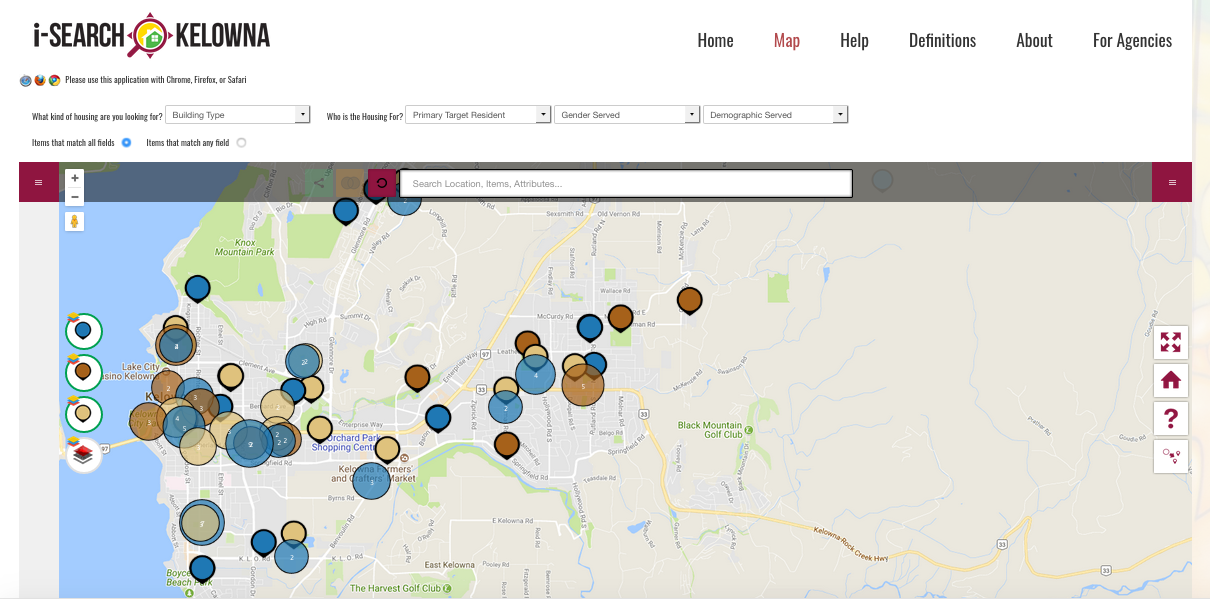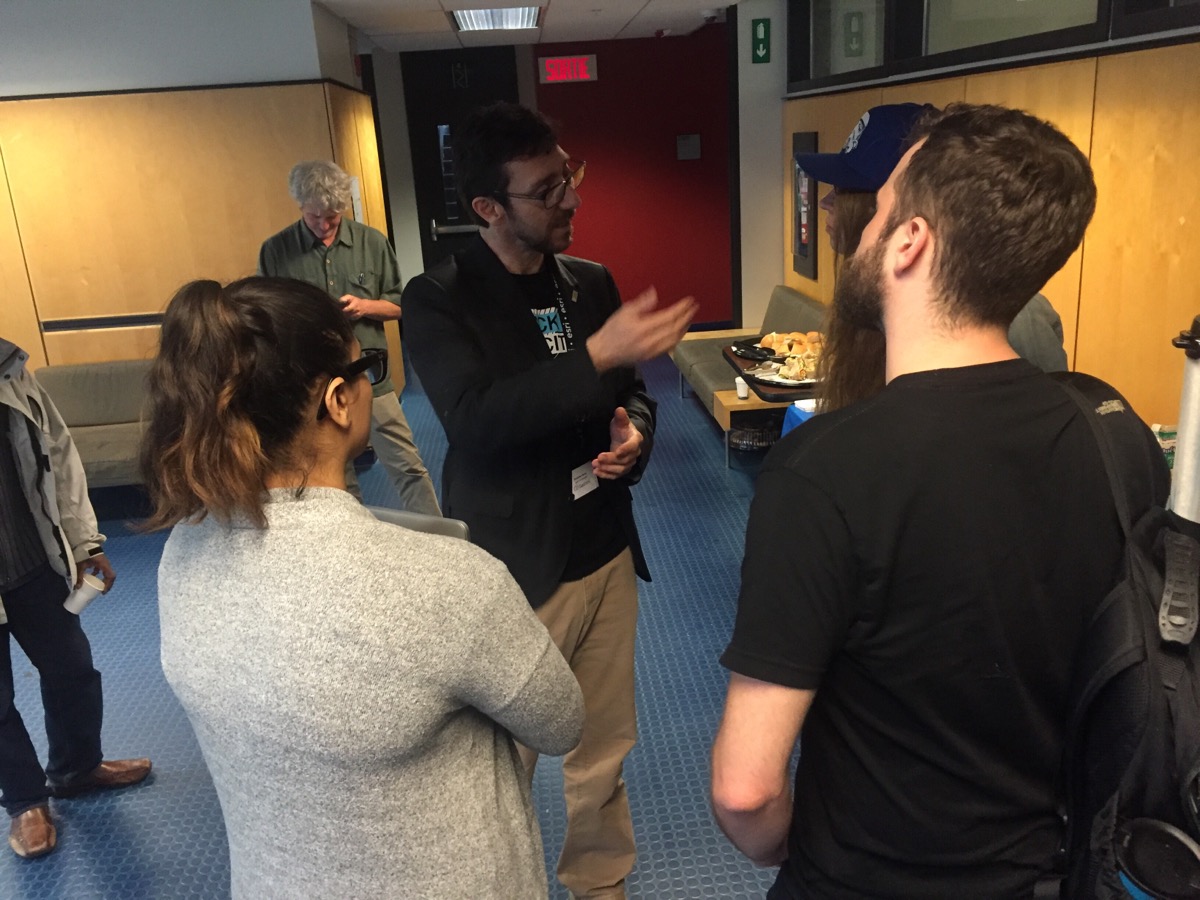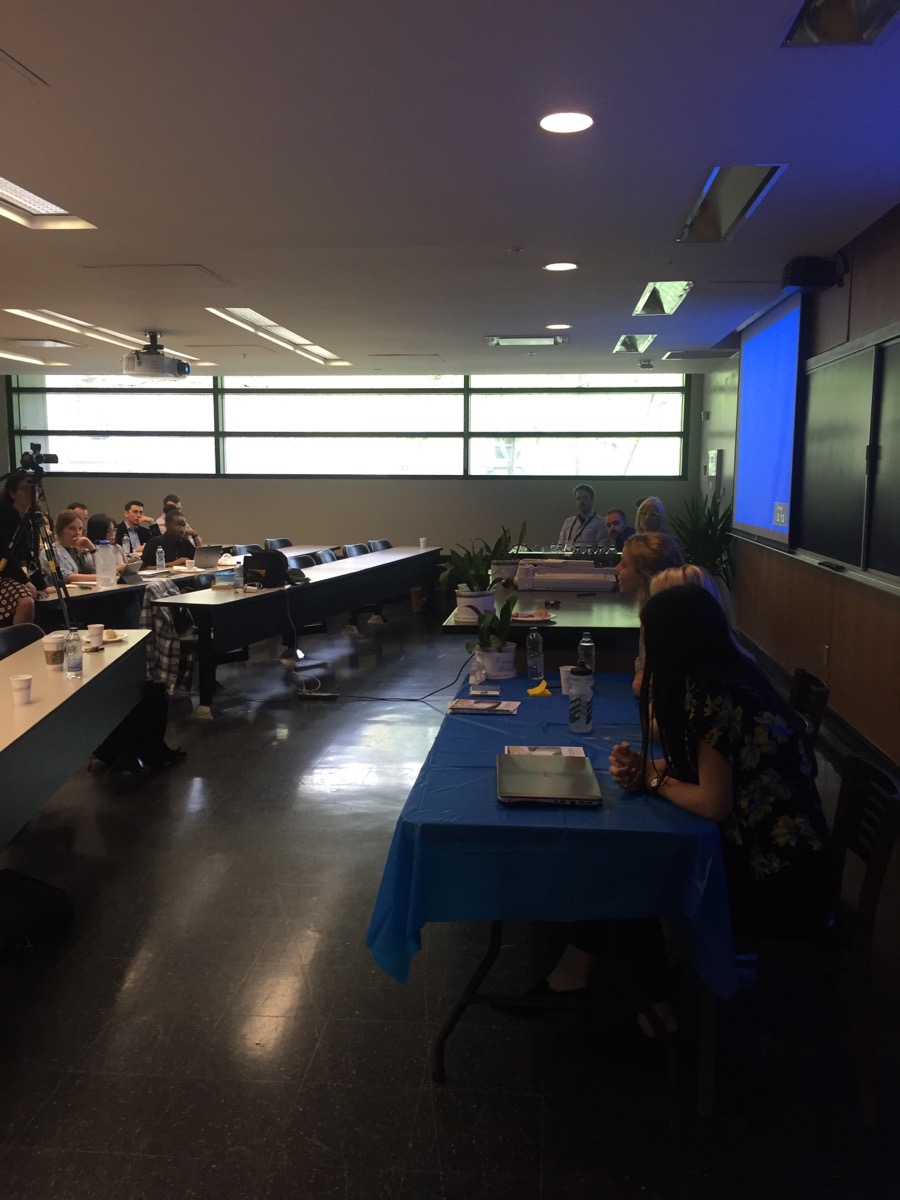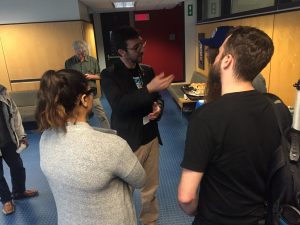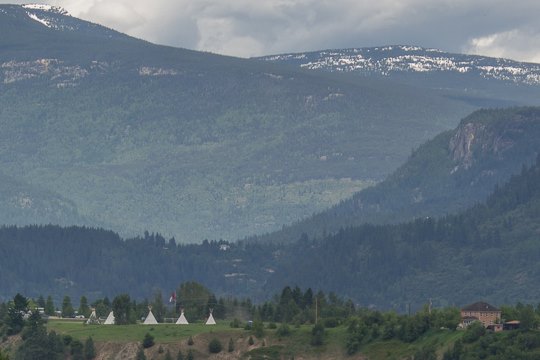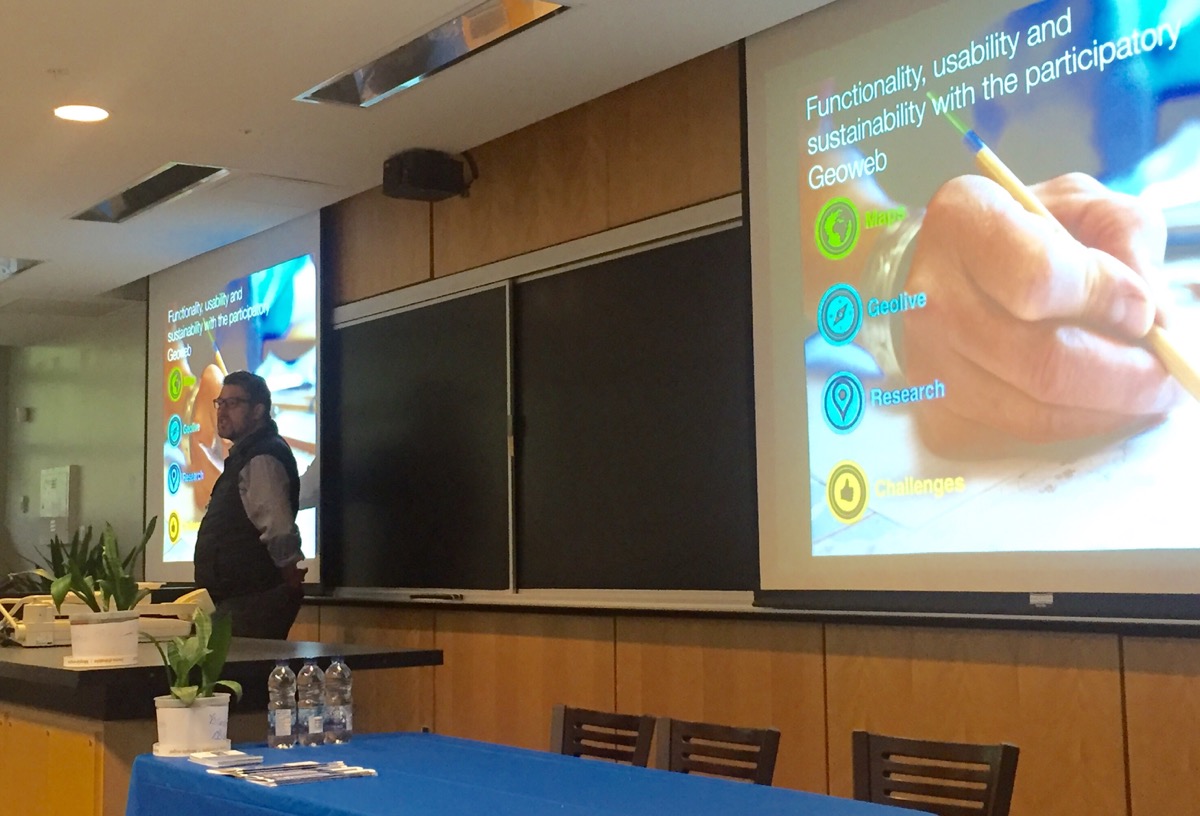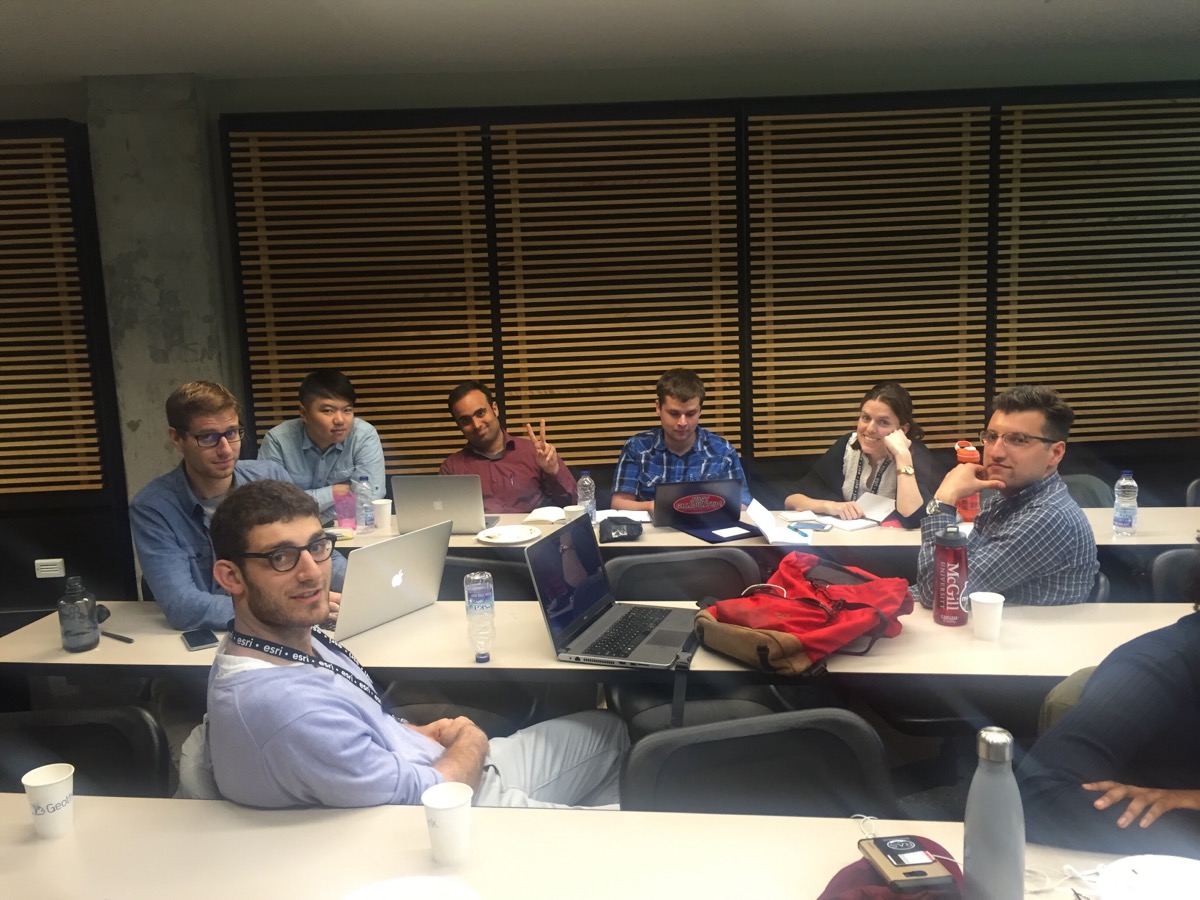
A new bridge is currently under construction next to Montreal’s Champlain Bridge. With Local Logic’s innovative approach, future planning decisions about bridges could be informed through detailed analysis of their impact on surrounding roads and neighborhoods.
By Drew Bush
When Local Logic co-founder and CEO Vincent Charles Hodder stopped by Geothink’s 2017 Summer Institute last year at McGill University in Montreal, QC, his presentation was a highlight for many of the students, faculty, and staff in attendance. Hodder’s company applies an innovative approach to improving the policies and practices of governments and their citizens through the use of urban geospatial data and modeling.
“We call ourselves urban planners turned data scientists,” Hodder told Geothink last summer. “So we’re really at the intersection of planning, data, data science, and then technology.”
Hodder told students his company was born out of his master’s work in McGill University’s School of Urban Planning and collaboration with students and faculty. At the time, the Canada Social Sciences and Humanities Research Council (SSHRC) Geothink partnership grant did not exist. But it would have been quite useful during his studies, he noted.
“Having people think about these issues while they’re in school I think is really important,” Hodder said. “And I think there is a lot of space for innovation in terms of cities, in terms of smart cities, and in using technology and having an impact on cities. So much so that we actually started a Meet-Up group in Montreal called Cities and Tech.”
Hodder and his colleagues have done more than start this group. His company has more than 15 full-time staff—including a former Geothink student. In the past few years, Local Logic has also expanded on its initial contributions to improving how urban development takes place or citizens choose their lodging. (His company’s approach allows you to know things like if your next prospective host on Airbnb might be located on a quiet or noisy street.)
Local Logic’s new ventures have moved beyond private real estate to focus on impacting municipal and urban planning and policy. He argues that his company stands at a crossroads. Their task is to redefine how governments create and present physical projects and accompanying policies so that individual citizens will better understand the impacts on their own lives.
“A lot of times these very large investments in public transportation, for example, are hard to understand for the citizen because it’s really difficult to kind of see the concrete impact on your life and on your daily activities,” Hodder said. “So, using our data we’ll be able to bring it down to that level of analysis and really see the difference in terms of, you know, housing values, lifestyle, and access to specific modes of transportation.”
“[Local Logic] mak[es] it much easier for people to understand the type of impact it will have on their lives,” he added. “For them, the citizens, to be able to make better decisions on whether or not to support these initiatives.”
Hodder’s company takes urban geospatial data collected in cities from now ubiquitous sensors and digital technologies such as smartphones. From this data, he and his colleagues work to painstakingly build models of urban spaces. This work starts with each individual street segment. On each street segment, coders must input all types of attributes relevant to a given project. These might include the width of streets, the height of buildings, the tree canopy, or how streets connect to adjoining infrastructure.
The resulting model has held a 94 percent confidence rate when applied to practical situations. It has been used to determine how best to place Bixi Bike locations in Montreal and to help housing developers better understand the needs of their potential customers. Future work may even evolve to include decision-makers in the federal government.
“We thought, what if we applied this way of analyzing the city to these kind of more macro issues as well,” Hodder said. “And then we realized there was this huge opportunity and there’s all this data available.”
Check out a video of Local Logic Co-Founder and CEO Vincent Charles Hodder talking at the 2017 Geothink Summer Institute in the second half of this video also featuring SmartHalo Co-Founder Xavier Peich.
Take a not-so-hypothetical situation as an example. Imagine one day that city officials in Quebec City and surrounding regions are planning a new bridge to cross from the North Shore to the South Shore of the Saint Lawrence River. Wouldn’t it be beneficial for governmental officials and their citizens to know how an automobile bridge versus one meant for bus rapid transit or rail affects traffic in surrounding neighborhoods and roads?
Local Logic’s effort to bring together academic researchers and stakeholders (who use technology to tackle urban problems) reflects an aim shared with the now concluding Geothink partnership research grant. The company’s work mirrors many of the lessons learned by Geothink’s researchers, students, and nonprofit, industry, and municipal partners. This helped to make Hodder’s presentation last summer quite compelling.
“It’s exciting to say,” he said. “But maybe we’ll have a real impact on the ways that cities are actually being built.”
###
If you have thoughts or questions about the article, get in touch with Drew Bush, Geothink’s digital journalist, at drew.bush@mail.mcgill.ca.
